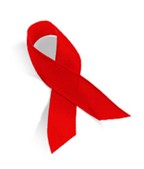 Our partners in the Presbyterian AIDS Network of PHEWA remind us of the importance of World AIDS Day:
Our partners in the Presbyterian AIDS Network of PHEWA remind us of the importance of World AIDS Day:
December 1, 2012 marks World AIDS Day (WAD), a day of awareness and action in the struggle to eradicate HIV and AIDS. World AIDS Day brings together people from around the world to raise awareness about HIV and AIDS and to demonstrate international solidarity. The day is an opportunity to spread awareness about the status of the pandemic and to encourage progress in HIV and AIDS prevention, treatment, and care. Between years 2011-2015, World AIDS Days will have the theme of “Getting to Zero: Zero new HIV infections. Zero discrimination. Zero AIDS-related deaths.” The World AIDS Campaign’s emphasis on “Zero AIDS-related deaths” signifies a push towards greater access to treatment for all. The 2012 focus “Working Together for an AIDS-Free Generation,” brings attention to the need for strong partnerships in order to achieve effective action. Check out
Learn more and find resources for the day
- World AIDS Day
- World AIDS Day 2012 – Presbyterian Office of Public Witness
Presbyterian International AIDS Ministries - Presbyterian International AIDS Ministries on World AIDS Day
- Presbyterian AIDS Network of PHEWA
- UNAIDS, the Joint United Nations Programme on HIV/AIDS
- Getting to Zero: World AIDS Day 2012 by More Light Presbyterians
A short interpretation of scripture from Becoming an HIV and AIDS Competent Church: Prophetic Witness and Compassionate Action (approved by 219th General Assembly in 2010):
Scripture speaks to all of us, to all those living with HIV and AIDS: those of us infected and those of us affected. It speaks words of comfort and tenderness to those who face their own mortality. It speaks with knowing experience about the fragility of life and the grief of loss: lost joys, lost hopes. It gives voice to the grief that can lead to anger, frustration, or a sense of profound meaninglessness. It
understands the desire for death to come swiftly.
Our ancient forebears experienced all this agony and gave us voice to cry out in despair. Job, when suffering pain all over his body, groaned, “… I would choose strangling and death rather than this body” (Job 7:15 NRSV). He then lashed out at God, saying, “I loathe my life; I would not live forever. Let me alone, for my days are a breath” (Job 7:16 NRSV). So some of us may cry. Others have cried out with the Psalmist in despair: “O my God, … do not take me away at the mid-point of my life” (Ps.102:24 NRSV). Those moments of wanting to give in to pain and
loss are powerful. So also are the times of our bitterness and complaint. (Job 7:11) Yet, our faith assures all of us, those living with HIV and AIDS and those of us affected by HIV and AIDS, that God is walking through that valley of the shadow of death with us (Ps. 23:4).
Thus, right after the outburst of pain, we hear the Psalmist proclaim, “Bless the Lord, O my soul, and all that is within me bless [the Lord’s] holy name” (Ps. 103:1 NRSV). In that moment of blessing and of proclaiming blessing, the weight of our mortality can be lifted and we recognize the grandeur and wholeness of God’s intentions for us. Living with mortality often involves this moving from despair to blessing, from anguish to thankfulness, and back again. The crucified Christ, who cried out in the Garden of Gethsemane when faced with his own impending mortality, joined us in this very human condition when he cried out as well, “Father, if you are willing, remove this cup from me; yet, not my will but yours be done” (Lk. 22:42 NRSV). We are told that then there appeared an angel from heaven to bring him
comfort (Luke 22:43). So we cry out as did Jesus, both to pray for God’s mercies and to proclaim blessings upon God who suffers with us. And in the midst of our anguish and despair, God is there to comfort us and give us hope.
Prayer
O Lord, God of Israel, God of all peoples, our God, may your name be praised. You have called your people to care for those on the margins of society, and we have heard your call. We have heard your call, but we have not always faithful to it, sometimes ostracizing instead of including, fearing instead of loving, dehumanizing instead of of sympathizing. And when we have been on the margins, we have often forgotten our own worth and believed lies about ourselves instead of the love of you who made us. Lord, when you came to us in the flesh, you told us that the poor will possess the kingdom of heaven, that those mourn will be comforted, that the meek will inherit the earth, and that those who hunger and thirst for righteousness will be satisfied. So may your kingdom come. may your kingdom come and end discrimination against those living with HIV and AIDS. May your kingdom come and bring healing and wholeness to all who are suffering, for it is the vulnerable, before the strong, who will know your reign. May your kingdom come.
Amen.
Thanks to Alexander Haines who wrote the prayer and compiled the post.